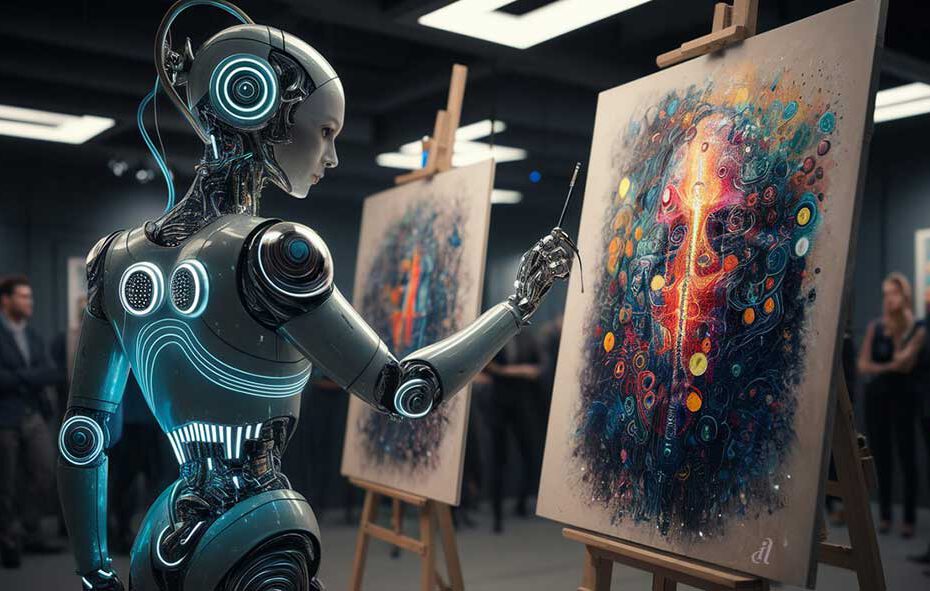As artificial intelligence (AI) continues to advance, the creative landscape is being transformed in unprecedented ways. The ability of AI systems to generate original art, music, and written content has raised complex questions around copyright, ownership, and the commercialization of these AI-created works. In this blog post, we will explore the current challenges and open questions surrounding the copyright and commercialization of AI art and content, and discuss potential solutions to address these issues.
The Ambiguity of AI Copyright
One of the primary challenges in the realm of AI-generated content is the ambiguity surrounding copyright law. Traditional copyright frameworks were not designed to accommodate the unique nature of AI-created works. When a human artist or writer creates a piece, the copyright is typically straightforward – it belongs to the individual who produced the work. However, with AI-generated content, the lines become blurred.
Is the AI system the “author” of the work, or does the human who developed and trained the AI hold the copyright? What if a human uses an AI tool to modify or enhance an existing work – who owns the resulting creation? These are the types of questions that current copyright law struggles to answer adequately.
The Commercialization Conundrum
The commercialization of AI-generated art and content presents another set of challenges. As AI systems become more sophisticated, they are capable of producing high-quality, marketable creations. This raises questions about the ownership and monetization of these works.
If an AI system generates a piece of art or writing, who has the right to sell or profit from it? The individual or company that developed the AI? The person who provided the prompts or instructions to the AI? Or should the AI system itself be considered the “owner” of the creation, with the ability to directly profit from its own work?
These questions become even more complex when considering the potential for AI-generated content to be used in commercial applications, such as advertising, product design, or entertainment. Navigating the legal and ethical implications of these scenarios is crucial for the responsible development and deployment of AI-powered creativity.
Potential Solutions: Blockchain and NFTs
As the challenges surrounding AI copyright and commercialization continue to evolve, innovative solutions are emerging. One promising approach is the use of blockchain technology and non-fungible tokens (NFTs) to establish ownership and provenance of AI-generated content.
Blockchain-based systems can provide a secure, decentralized, and transparent way to record the creation, ownership, and transactions of AI-generated art and content. By minting these works as NFTs, the original creator or owner can be clearly identified, and the authenticity and ownership of the work can be verified on the blockchain.
Furthermore, the use of NFTs can enable the direct commercialization of AI-generated content, allowing creators or owners to sell their works directly to consumers. This could help to address the challenges around the monetization of AI-created content and ensure that the rightful parties are able to benefit from their creations.
The copyright and commercialization of AI-generated art and content is a complex and rapidly evolving landscape. As AI systems continue to push the boundaries of creativity, it is crucial that policymakers, legal experts, and industry stakeholders work together to develop clear and comprehensive frameworks to address these challenges.
Solutions such as blockchain-based systems and NFTs offer promising avenues to establish ownership, provenance, and monetization of AI-generated works. However, these technologies are just the beginning, and ongoing collaboration and innovation will be necessary to ensure that the creative potential of AI is harnessed in a responsible and equitable manner.
By addressing the ambiguities in current copyright law, and exploring innovative solutions for the commercialization of AI-generated content, we can unlock new opportunities for artists, creators, and the public to benefit from the transformative power of artificial intelligence.
